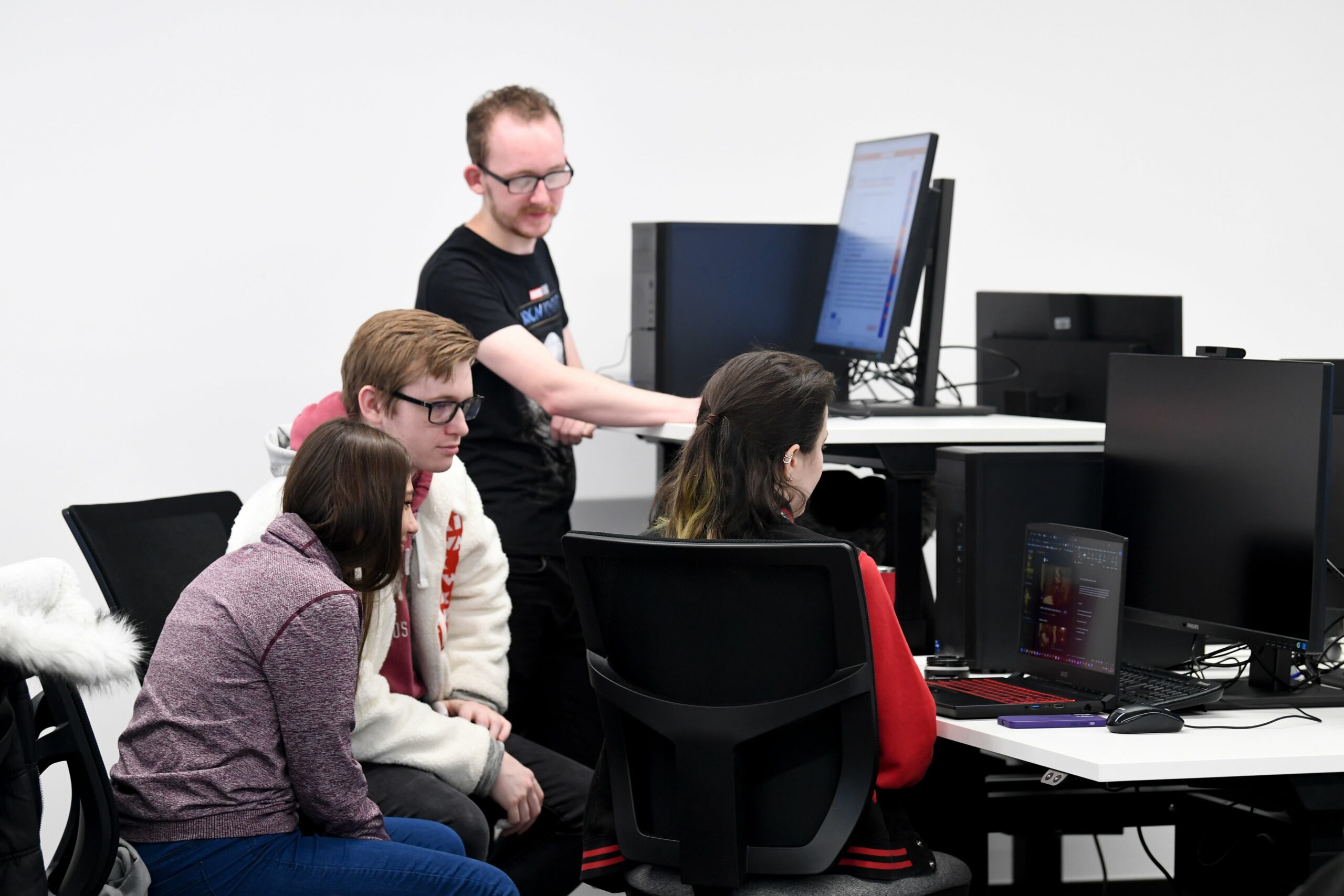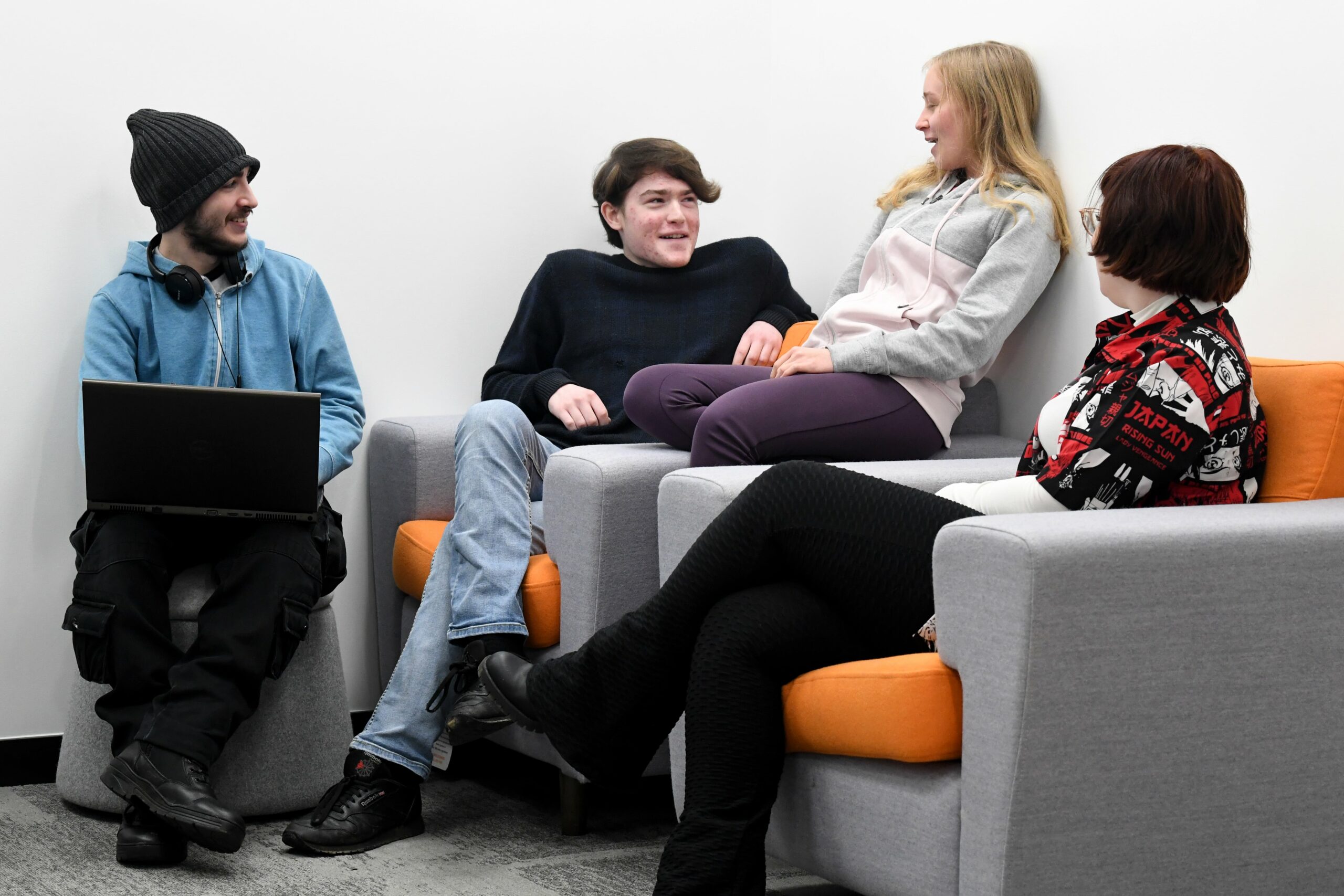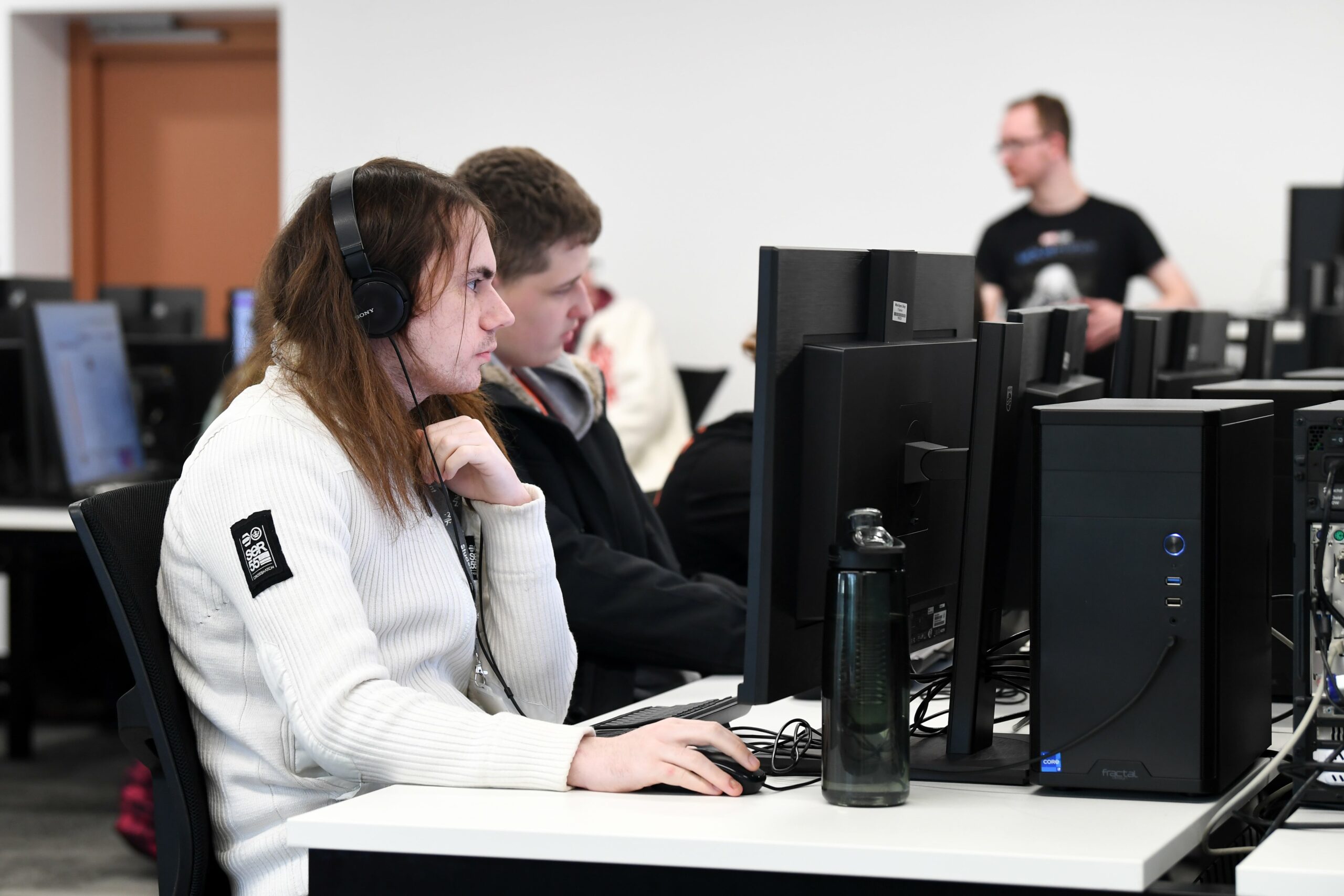We’re here to help
Student support
At the South Central Institute of Technology, we provide a comprehensive support network to allow our learners to truly focus on fulfilling their potential.

Student Support at the South Central Institute of Technology
We understand that starting a new course, especially at higher levels, can be a big step—and we’re here to help you every step of the way.
At the South Central IoT, our priority is your success. Alongside high-quality teaching and industry-focused learning, we offer a broad range of support to help you thrive both academically and personally.

What support is available?
Our Student Development & Support team is here to provide practical advice and tailored guidance, including:
- Wellbeing and emotional support – For students facing personal challenges, our team offers confidential support and can connect you with further services if needed.
- Learning support – Whether you have a diagnosed learning difficulty, a disability, or simply need extra help, we’ll work with you to make sure the right support is in place.
- Study skills – Workshops and one-to-one mentoring are available to help with time management, essay planning, revision techniques, and more.
- Careers advice – Our qualified Careers Advisors are available throughout your time with us to help you plan your next steps, whether that’s university, employment, or an apprenticeship.
- Financial guidance – We can support you with information about bursaries, funding, and where to go for help with money worries.

